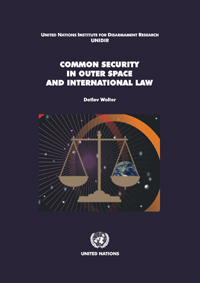The Outer Space Treaty (OST) of 1967 requires that the exploration and use of outer space be conducted in the interest of all states and for the benefit of all mankind. In view of the looming risk of the weaponization of space, the enhancement and institutionalization of this norm have become crucially important.
At the moment, the military uses of outer space are confined to gathering and transmitting information. Growing interest in the emplacement of lethal weapons, however, exemplified by US ballistic missile defence plans that include space-based interceptors and the capacity to disable and destroy enemy space vehicles, point to an eventual weaponization of space that is certain to have dire consequences for all.
The stationing of lethal weapons in space is likely to set off an arms race with the result that everyone will be less secure. Moreover, a space arms competition will increase the cost of space transacting for all, since henceforth even civilian satellites and installations will have to be protected against the harmful effects of accidents or attacks. Finally, the weaponization of space raises the possibility of lethal confrontation that would render space virtually unusable for all because of chronic contamination by debris resulting from the destruction of satellites and other vehicles.
Having not long ago emerged from the dangers of the Cold War, the international community must not allow the deployment of weapons in space, even for defensive purposes. Toward this end, negotiation of a multilateral Treaty on Common Security in Outer Space, on the basis of the far-sighted peaceful purposes principle already contained in the OST, and the creation of a corresponding implementing agency responsible for overseeing its faithful enactment, would ensure that outer space remains an area of peace and collaboration, and a common heritage of mankind.
Citation: Detlev Wolter (2006). "Common Security in Outer Space and International Law", UNIDIR, Geneva.
